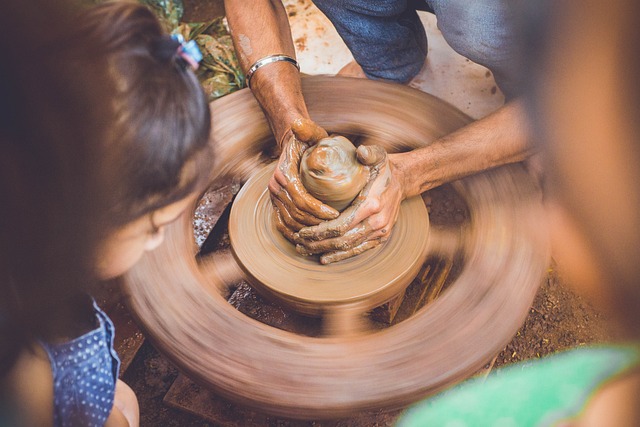Are you expecting a baby but also wanting to enhance your smile with veneers? Discover what the experts say about safety during pregnancy.
1. Understanding Dental Veneers: A Brief Introduction to the Procedure
Dental veneers are a popular cosmetic dentistry procedure aimed at improving the appearance of a person’s smile. These thin, custom-made coverings are placed over the front surface of teeth, instantly transforming their shape, color, and overall appearance. Veneers are typically made from porcelain or composite resin, both of which are durable and provide a natural-looking finish.
One of the main reasons people opt for dental veneers is to correct imperfections such as chipped or cracked teeth, gaps between teeth, or severe tooth discoloration that cannot be fixed with teeth whitening procedures. The veneer placement process usually involves multiple visits to the dentist. During the initial consultation, the dentist will examine your teeth, discuss your goals, and develop a treatment plan tailored to your specific needs.
Next, the dentist will prepare your teeth for veneer placement by removing a small amount of enamel from the front surface. This ensures a proper fit and allows space for the veneer. You may receive a local anesthetic to ensure a pain-free experience. After our dentist makes an impression of your teeth, it will be sent to a dental laboratory where your custom veneers will be fabricated. Once ready, the dentist will bond the veneers to your teeth using a special adhesive, ensuring a secure and long-lasting bond. With proper care and maintenance, dental veneers can last for many years, providing you with a beautiful, confident smile.
2. The Safety of Dental Procedures During Pregnancy: What Experts Say
Pregnancy is a special time that requires extra care and attention, especially when it comes to healthcare procedures. Many women wonder about the safety of dental treatments during this crucial period. Luckily, experts in the field have provided valuable insights to put your mind at ease. Here’s what they have to say:
Dental cleaning: Regular dental cleanings are safe during pregnancy. In fact, maintaining good oral hygiene is essential for both the mother and the baby’s overall health. Professional cleanings help remove plaque and tartar buildup, reducing the risk of gum disease, which has been linked to preterm birth.
X-rays: Dental X-rays are generally avoided during pregnancy unless absolutely necessary. However, if you have a dental emergency or if X-rays are essential for a procedure, the radiation exposure is minimal, and proper shielding techniques should be used to protect both you and your baby.
-
- Local anesthesia: The use of local anesthesia for dental procedures during pregnancy is considered safe. Lidocaine, a commonly used anesthetic, has been extensively studied and is widely accepted as safe for pregnant women.
- Tooth extractions: If a tooth extraction is necessary during pregnancy, it is generally recommended to do it during the second trimester. At this stage, the risk of complications is minimal, and proper measures can be taken to ensure your comfort and safety.
- Medications: Antibiotics and pain relievers commonly used in dentistry are generally safe during pregnancy. However, it’s crucial to inform your dentist about your pregnancy before any medications are prescribed.
Remember, it’s always best to consult with your dentist and obstetrician before undergoing any dental procedures during pregnancy. They will be able to provide personalized advice and ensure your safety and well-being throughout this delicate phase of life.
3. The Curiosity: Can You Get Veneers While Pregnant?
While it’s important to prioritize your dental health during pregnancy, there are certain treatments that should be avoided due to potential risks. One such treatment is getting veneers. Veneers are thin shells of porcelain or composite material that are bonded to the front of your teeth to improve their appearance. Although veneers are generally safe, it is advisable to postpone this cosmetic procedure until after your pregnancy for several reasons.
The potential risks:
- Veneers require the use of dental anesthetics, which may not be advisable during pregnancy due to the potential impact on fetal development. It’s crucial to minimize the exposure to any unnecessary medication or chemicals during this time.
- Dental procedures can sometimes cause temporary discomfort or sensitivity. Pregnancy already comes with its share of discomforts, so it’s best to avoid any extra challenges that may arise from getting veneers.
- Pregnancy can cause hormonal changes that could affect the appearance of your teeth. It’s common for some women to experience gum swelling or bleeding during pregnancy, which can affect the fit and longevity of veneers. Waiting until after your pregnancy allows for a more accurate and long-lasting result.
4. Potential Risks: Exploring the Concerns and Contradictions
In order to make an informed decision, it is crucial to thoroughly examine the potential risks associated with any endeavor. When exploring concerns and contradictions surrounding a particular subject, it is important to consider various perspectives and gather as much information as possible. Here, we will delve into the potential risks related to the topic at hand:
1. Financial Uncertainty:
- Investing in X may involve a considerable amount of financial risk, as market fluctuations can impact the value of assets and investments.
- Depending on the specific context, there may be additional costs associated with maintenance, upgrades, or future adaptations to X.
- Failing to adequately assess the financial risks involved could result in unexpected financial burdens or losses.
2. Ethical Dilemmas:
- Implementing X may raise ethical concerns regarding privacy, data protection, or the potential for misuse of information.
- It is crucial to consider the ethical implications associated with X, such as its impact on marginalized communities or the potential exacerbation of existing inequalities.
- Furthermore, there may be conflicting viewpoints and values within society regarding the morality or ethical acceptability of X.
By assessing the potential risks thoroughly and considering the concerns and contradictions associated with the subject, one can make informed decisions and develop strategies to mitigate these risks effectively.
When it comes to dental veneers and pregnancy, it is essential to carefully consider the potential risks and benefits. We have consulted experts in the field to provide you with a detailed analysis. 1. Safety concerns: Pregnancy involves hormonal changes that can affect the oral health of expectant mothers. Dental treatments during pregnancy should prioritize the well-being of both the mother and the baby. Here are important factors to consider: 2. Suitability and benefits: While there is limited research specifically on dental veneers and pregnancy, their placement and removal often involve minimal risks. Here are some important insights: There are several myths surrounding veneers and pregnancy, but rest assured, veneers are generally safe during pregnancy. It’s important to understand the facts and debunk these misconceptions: Pregnancy is a unique period where oral health is essential. Maintaining good oral hygiene practices, such as regular brushing and flossing, along with routine dental check-ups, is crucial for overall health during pregnancy. If you have any concerns or questions about veneers or any other dental treatment while pregnant, it is best to consult with your dentist who will provide personalized guidance based on your specific situation. During pregnancy, your body undergoes significant hormonal changes that can impact your dental health. While there is no specific time that is considered best for getting veneers, it’s important to consider a few factors before, during, or after pregnancy: Ultimately, the decision of when to get veneers depends on your individual circumstances and preferences. Consulting with your dentist during or after your pregnancy can help you determine the optimal timing for your veneer treatment. As an expectant mother, it’s crucial to thoroughly consider the risks and benefits associated with certain choices. Making informed decisions during this important time can have a significant impact on both your health and that of your baby. To help you navigate through this process, we’ve outlined some key points to ponder: When it comes to dental care during pregnancy, it’s important to prioritize the health and well-being of both the mother and the baby. Fortunately, there are several non-invasive dental procedures that pregnant women can consider to maintain their oral health without any harm. 1. Professional Teeth Cleaning: Regular dental cleanings performed by a dental hygienist are safe for pregnant women. This procedure helps remove plaque and tartar buildup, reducing the risk of gum disease and keeping your teeth and gums healthy. 2. Dental X-Rays with Lead Apron: Although it’s recommended to avoid unnecessary dental x-rays during pregnancy, if you have a dental emergency, dental x-rays with a lead apron can be done safely. Be sure to inform your dentist about your pregnancy and wear a lead apron to minimize any potential radiation exposure. Pregnancy is a transformative time in a woman’s life, and it’s important to prioritize oral health and aesthetics during this period. Maintaining good dental hygiene not only ensures the well-being of the mother, but also contributes to the overall health of the baby. Here, we will discuss why dental care is vital during pregnancy and provide practical tips for achieving healthy teeth and gums. During pregnancy, hormonal changes can lead to increased sensitivity and vulnerability to oral health issues like gum disease and tooth decay. As such, it is crucial for expectant mothers to pay extra attention to their dental care routine. Here are some key steps: By following these recommendations, pregnant women can protect their dental health and ensure a safe and aesthetic smile throughout their journey towards motherhood. In conclusion, while the safety of getting veneers during pregnancy remains uncertain, it is best to err on the side of caution. Consult your dentist and OB-GYN for personalized advice. Prioritize your and your baby’s health above aesthetic concerns.
6. Is It Safe? Debunking the Myths Surrounding Veneers and Pregnancy
7. When Should You Consider Getting Veneers: Before, During, or After Pregnancy?
8. Weighing the Risks and Benefits: Making Informed Decisions as an Expectant Mother
Conclusion






